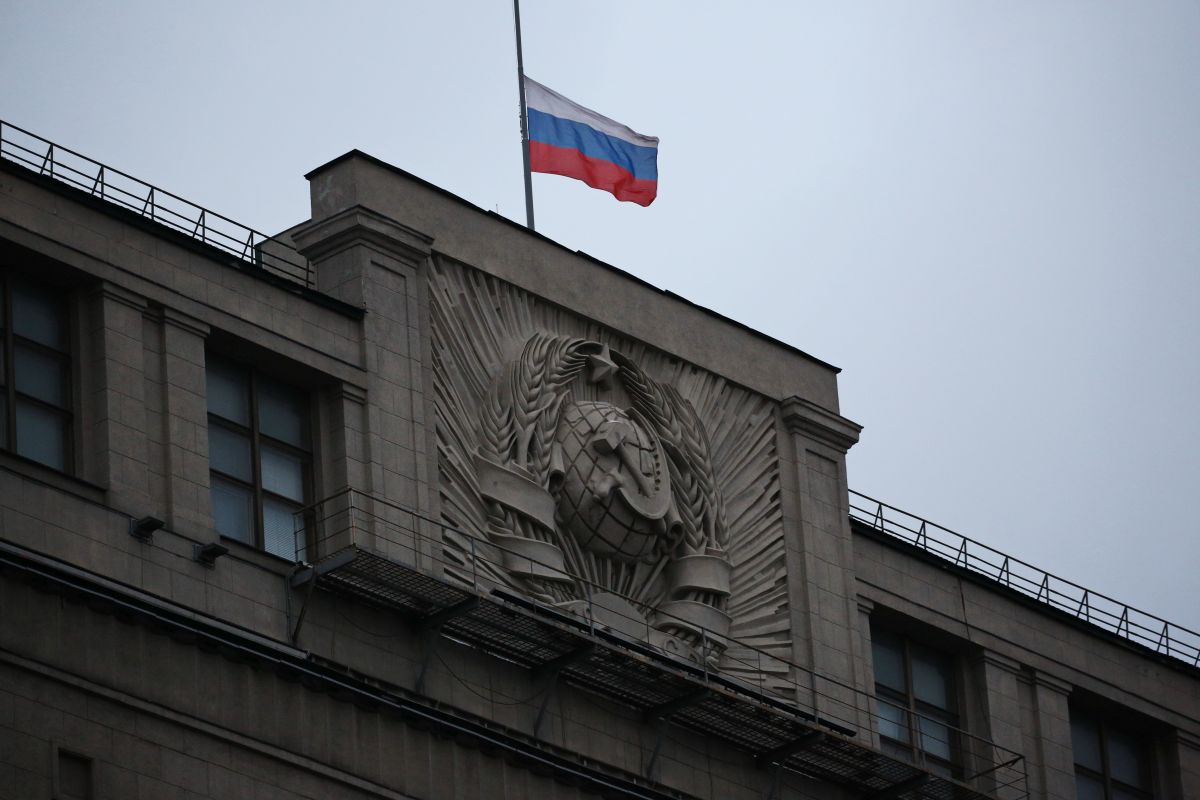A delicate balancing act
The on-going conflict in Ukraine has sent shockwaves through global energy markets, impacting everything from international relations to commodity prices.
Kremlin critics condemned the move as a cynical manipulation and called for protests.

Russian national flag flies at half-mast at State Duma building in Moscow, Russia (File Photo: IANS)
The Russian State Duma or the Lower House of Parliament on Wednesday passed a bill amending the national constitution initiated by President Vladimir Putin in the third and final reading.
State Duma Speaker Vyacheslav Volodin said, “We should unite as much as possible around the bill on amendments to the constitution adopted today, put forward for discussion to citizens the proposals that have been discussed for two months, and accepted by us”, according to the reports.
Volodin further said a total of 206 amendments were made, filling “the concept of a social state with concrete content”.
Advertisement
A nationwide vote on the proposed amendments is set for April 22.
Kremlin critics condemned the move as a cynical manipulation and called for protests.
Putin, a 67-year-old former KGB officer, has ruled Russia for more than 20 years. After serving for two consecutive four-year terms — a limit outlined in the current version of the constitution.
The Russian leader shifted to prime minister’s seat in 2008, with his close ally Dmitry Medvedev becoming a placeholder president.
The constitutional reform passed by the Duma on Wednesday would allow Putin to run for presidency two more times after 2024. Before the national vote, it will be reviewed by Russia’s Constitutional Court.
The move prompted immediate calls for protests from various opposition groups. On Tuesday night, about 200 people gathered near the Kremlin and lined up to hold solo pickets — the only form of protest in Russia that it legal without prior authorization from the government — against the reform.
According to an amendment, the incumbent President will be able to participate in the 2024 presidential election on the condition that the Constitutional Court recognizes it as not contradicting the basic law.
Pickets and protests were being organized in other Russian cities as well, Tatyana Usmanova said, an activist with the “No” group formed two months ago to coordinate the opposition effort against the reform.
Advertisement